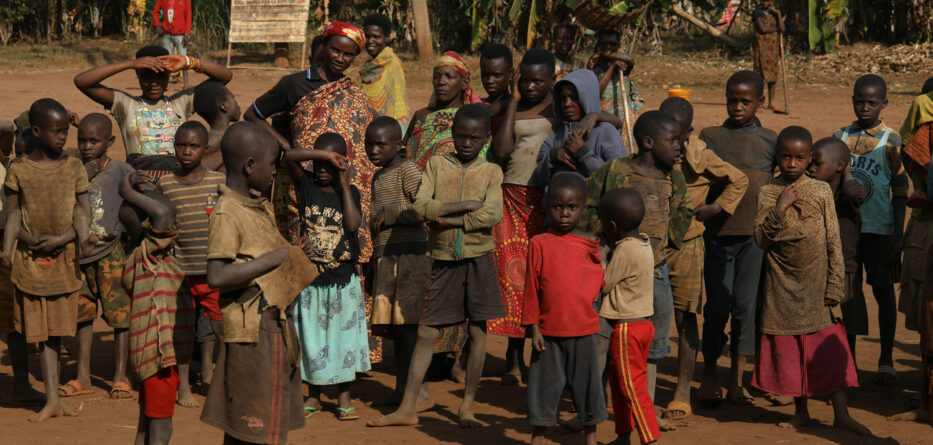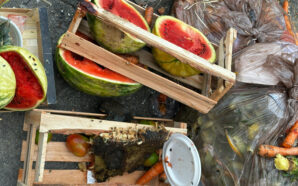Sunita Sohrabji
American Community Media
If the wealthiest people in the world contributed even a fraction of their fortunes, the collapse of U.S. foreign aid programs could be offset, said Nobel Laureate, Dr. Abhijit Banerjee.
“Take 1% of the wealth of the top 3,000 people in the world. That’s about $140 billion. That alone could replace much of what has been lost. It’s not impossible. It’s a matter of will,” said Banerjee, speaking Sept. 9 at an American Community Media news briefing.
Shortly after taking office, President Donald Trump scrapped USAID, which supports global aid initiatives throughout the developing world. In 2023, the US spent $71.9 billion on foreign aid, about 1.2% of its annual budget. The abrupt shutoff of foreign aid has been challenged in courts; earlier this month, the Supreme Court weighed in, noting that Trump could withhold $5 billion in funding already appropriated by Congress through a process known as pocket rescissions.
Musk’s Woodchipper Effect
“It’s a bit of an understatement to say that this is a rather critical moment for the world,” said Banerjee. Over the last eight months, we have seen a total kind of repositioning of U.S. contributions to the ‘World Aid Envelope.’”
“Equally consequentially, the US is insisting that Western countries which have been important partners for the US in giving aid also re-up their defense budgets. This has meant that countries like the UK and France are also cutting back on their aid. So there’s a knock-on effect as well as the original Mr. Musk’s wood chipper effect on USAID,” he said.
Tesla founder Elon Musk served in the Trump Administration during its first 6 months, heading up the newly-formed Department of Government Efficiency. Musk claimed he could cut 2 trillion in what he called “waste, fraud, and abuse,” from the federal budget. But — as he left after a very public falling-out with Trump — Musk claimed he had cut $55 billion, though that figure is difficult to verify.
With U.S. leadership faltering on global aid, it remains uncertain who might fill the void, said Banerjee. Norway and Spain have modestly increased their commitments, while China is expanding targeted programs. He also suggested that India and Brazil should contribute more to global aid, given their rising economic power.
Transforming Global Aid
“But the U.S. is enormous. It is hard to replace it,” said Banerjee, who co-founded the Abdul Latif Jameel Poverty Action Lab in 2003 with the aim of reducing poverty by ensuring that policy is informed by scientific evidence. Banerjee won the Nobel Prize in 2019 — alongside his wife Esther Duflo and colleague Michael Kremer — for creating randomized control trials that measure the efficacy of global aid initiatives. Their work has been credited with transforming the way global aid is distributed.
Key to the team’s work is identifying the root causes of poverty and focusing on smaller, manageable initiatives, such as a deworming program in Kenya, and a midday school lunch program in India, both aimed at increasing school attendance.
The past 20 years have been excellent for the world’s poorest people, stated Banerjee. “Extreme poverty went down very substantially, and not just in countries like India and China, but everywhere. Maternal mortality went down very substantially, infant mortality halved, school participation of both boys and girls went up; girls went up to the point where in many countries, they are now ahead of boys in terms of school participation.”
Setbacks to Growth
“These extreme pockets of poverty were going in the right direction,” he said. But as global aid from the US is halted, and funds from other countries scale back, many countries are going to face a substantial setback.
“There are some relatively small number of very poor countries where the aid is a very substantial part of the government budget. In these countries, there will be clear and very, quite immediate cutbacks in terms of their ability to carry out their social investments. There’s no way to avoid it other than by replacing the money,” said Banerjee.
Syria, South Sudan, Sudan, Somalia, and the Democratic Republic of Congo, among other countries are facing an ongoing humanitarian crisis, either driven by civil war or by drought or a combination of the two. “And as a result, there are lots of young children who are really at the margins of starvation,” said Banerjee.
He noted that the humanitarian crisis in Gaza — which is on the brink of a famine — could easily be resolved by allowing foreign aid to come through. “Gaza is a relatively small population. It’s not the size of Sudan or the DRC. So the primary issue is always going to be the political one.”
Funding for the President’s Emergency Plan For Aids Relief — PEPFAR, established in 2003 by President George W. Bush — and Gavi, the global vaccine alliance, is also at risk of being cut. “So AIDS deaths and deaths from not being vaccinated are going to also be another issue we’ll have to confront,” said the economist.
“We’re not talking about a huge amount of money. We’re talking about a huge amount of political will, which, sadly, is not there,” said Banerjee.





